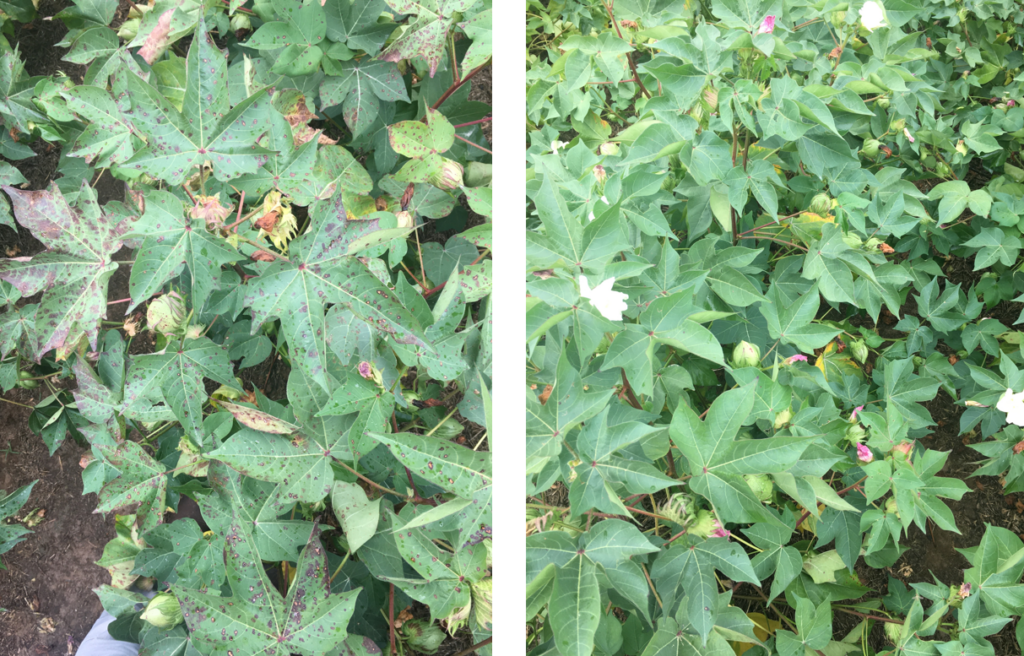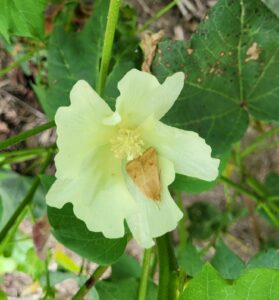| Location | CEW | TBW |
| Hardeman (Bolivar) | 6 | 0 |
| Fayette (Whiteville) | 29 | 0 |
| Fayette (Somerville) | 26 | 0 |
| Shelby (Millington) | 42 | 0 |
| Tipton (Covington) | 2 | 0 |
| Tipton (North) | 20 | 0 |
| Lauderdale (Golddust) | 35 | 0 |
| Haywood(West) | 8 | 1 |
| Haywood (Brownsville) | 67 | 0 |
| Madison (WTREC) | 41 | 1 |
| Madison (North) | 35 | 0 |
| Crockett (Alamo) | 1 | 1 |
| Crockett (Friendship) | 51 | 0 |
| Dyer (King Rd) | 48 | 1 |
| Dyer (Dyersburg) | 61 | 0 |
| Lake (Ridgely) | 35 | 2 |
| Gibson (Trenton) | 98 | 0 |
| Gibson (Milan Rec) | 4 | 0 |
| Carroll (Coleman Farm) | 15 | 2 |
Recent Updates
Tennessee Market Highlights – 08/11/2023
Corn, soybeans, and wheat were down; cotton was up for the week.
On Friday, August 11, the USDA released FSA Crop Acreage Data and Crop Production and WASDE reports. Overall, the reports were neutral to bearish for corn, soybean, and wheat prices and bullish for cotton prices. Continue reading at Tennessee Market Highlights.
August 10 Bollworm/Budworm Catches for West TN
| Location | CEW | TBW |
| Hardeman (Bolivar) | 3 | 0 |
| Fayette (Whiteville) | 31 | 1 |
| Fayette (Somerville) | 12 | 0 |
| Shelby (Millington) | 36 | 0 |
| Tipton (Covington) | 4 | 0 |
| Tipton (North) | 15 | 0 |
| Lauderdale (Golddust) | 17 | 0 |
| Haywood(West) | 21 | 1 |
| Haywood (Brownsville) | 26 | 0 |
| Madison (WTREC) | 48 | 3 |
| Madison (North) | 18 | 0 |
| Crockett (Alamo) | 1 | 2 |
| Crockett (Friendship) | 27 | 0 |
| Dyer (King Rd) | 44 | 1 |
| Dyer (Dyersburg) | 45 | 1 |
| Lake (Ridgely) | 20 | 2 |
| Gibson (Trenton) | – | – |
| Gibson (Milan Rec) | 2 | 5 |
| Carroll (Coleman Farm) | 20 | 0 |
Due to the excess rainfall we experienced over the past week, we weren’t able to reach our Trenton location. If moth numbers are exceedingly high, I’ll update the post and send out those numbers tomorrow.
Foliar fungicide use in cotton when August turns wet

August has turned wet, and while I generally like rain through July and August, we could now tolerate a few dry, clear days. Much of our canopy has remained wet over the past week, and as you might expect, the leaf spot complex has appeared in some of our earliest planted cotton. Subsequently, foliar fungicide use in cotton has been the topic of conversation for August. Fortunately, most of our research on fungicide use in cotton is pretty straight-forward. In this blog, I share a few thoughts concerning foliar fungicide use in cotton and link to a few of Dr. Heather Kelly’s deliverables from the past few years. Continue reading
Base Acres Should Be Addressed Before Reference Prices
The most common refrain from crop producers and agricultural stakeholders during the current Farm Bill listening sessions is the need to increase reference prices to reflect changes in input costs for row crops over the past five years. Although an important factor in Farm Bill negotiations, Dr. Aaron Smith discusses the need to address base acres before reference price changes.
August 3 Bollworm/Budworm Catches for West TN
| Location | CEW | TBW |
| Hardeman (Bolivar) | 4 | 0 |
| Fayette (Whiteville) | 26 | 0 |
| Fayette (Somerville) | 16 | 0 |
| Shelby (Millington) | 30 | 0 |
| Tipton (Covington) | 3 | 0 |
| Tipton (North) | 17 | 0 |
| Lauderdale (Golddust) | 18 | 0 |
| Haywood(West) | 22 | 1 |
| Haywood (Brownsville) | 31 | 3 |
| Madison (WTREC) | 14 | 0 |
| Madison (North) | 0 | 0 |
| Crockett (Alamo) | 0 | 2 |
| Crockett (Friendship) | 3 | 0 |
| Dyer (King Rd) | 6 | 1 |
| Dyer (Dyersburg) | 28 | 1 |
| Lake (Ridgely) | 9 | 3 |
| Gibson (Trenton) | 16 | 0 |
| Gibson (Milan Rec) | 0 | 0 |
| Carroll (Coleman Farm) | 5 | 0 |
August Insect Situation
I’ve received several calls over the past few days about large numbers of immature plant bugs being found 7-10 days after insecticide applications. Corn is quickly drying down, pigweed and other wild hosts have flowered and cotton is at peak bloom in several areas. This makes cotton an ideal host for plant bugs and in some instances the only host. Our top tier products (Transform, Orthene, Diamond, Orthene + pyrethroid) are still controlling plant bugs well and are about the only options we have in August.
Diamond is an insect growth regulator (IGR) that’s primary activity is on plant bug nymphs. Generally speaking, smaller nymphs (1st-2nd) are easier to control with IGRs than larger nymphs. Fields with a high population of larger nymphs (3rd-5th) will see slower control ofplant bugs than fields with predominately small nymphs. Diamond’s efficacy isn’t usually apparent until 10-14 days post treatment. Checking behind Diamond 6 to 7 days post may not give you an accurate representation of what’s happening in your field. However, if nymph numbers, especially small nymphs, are increasing by day 10 retreatment may be justified. Getting the best control with Diamond requires knowing the size of your predominate plant bug nymphs are and a little luck on the timing. Also, Transform and Diamond don’t have activity on stink bugs, the addition of a pyrethoid or organophosphate to oversprays will take care of stink bugs in cotton
A quick note on Orthene, its well known that Orthene’s rainfastness is slow and if you can, give it a full 24 hours. I’ve seen my best control with Orthene when we have 48 hours of no rainfall behind an application. Adjuvants may help decrease the time required to be rainfast somewhat but there’s no substitution for a day of dry weather behind an application.

Bollworm egg lay is picking up in a few places around West TN. So far, I haven’t heard of any failures in 3-gene cotton in Tennessee or the Midsouth. It is highly unlikely you will have to spray for worms in any of our triple gene varieties. Our monitoring efforts of Bt corn, which can help forecast issues in cotton, have shown no survivorship in VIP corn. Double Pro varieties, which are equivalent to BG2, are heavily infested with worms and any BG2 cotton should be scouted closely and applications made on our 20% egg threshold.
Soybeans for the most part have been very quiet for much of the growing season. Recently, I noticed a large increase in kudzu bugs and stink bugs infesting soybeans, this is to be expected since we’re reaching the later part of summer. Also, with much of our corn acres reaching dent or past, I would expect to see a decent surge in stink bug numbers as we continue into August. Pyrethroids are good options for almost every pest we face in beans late season. Lingering populations of resistant brown stink bugs may require a premix insecticide (Endigo, Leverage, etc) or the addition of a 0.5 lb of orthene with your pyrethroid.
Time to submit entries: TN Soybean Yield Contest
The Tennessee Top Bean soybean yield contest sponsored by the TN Soybean Promotion board and coordinated by UT Extension is open for entries now until September 1st for the 2023 season. Continue reading

